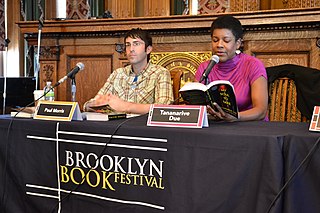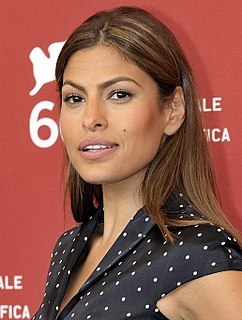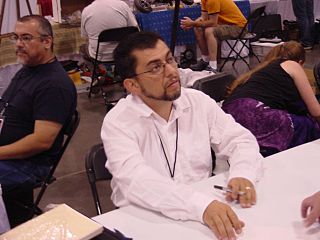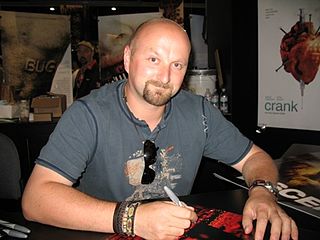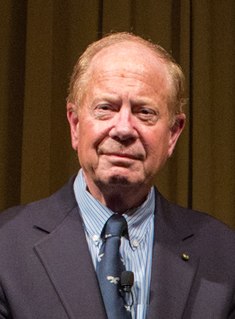A Quote by Tananarive Due
I would say that in my black readership, more of my readers tolerate the horror aspect of my work, you know. 'I don't usually read this kind of stuff, but.'
Related Quotes
The one thing I cannot tolerate in life is seeing people being taken advantage of, I cannot tolerate it; I can't even see it in a movie. That can borderline on abuse and so what I would say is: really know when to put that guard up, and know how to really read people because that will help you along the way.
Is there deeply embedded change within our industry? And I would say, as a black filmmaker, it's easy for me to focus my attention on black work, but true change would include brown work, and it would include work by Asian-Americans, and it would include natives, and it would include women, and it would include more LGBTQ voices.
People would always say horror movies always thrive during times of war; that's just what people would say. And I don't know if they thrived during World War II or Vietnam, but I thought that's kind of strange, why would that happen. I don't know if people rearrange their priorities; in good times, they freak out and start pointing the fingers at video games and TV, but when horrible things are happening in the world, a horror movie just seems a little ridiculous.
I've always kind of thought that reviews written by readers for readers are a kind of private space between consumers. It's their right to say anything they like about your material, and authors need to know that and respect that. As for my end, I'm aware of what my sales are, so I know that my books are working in the marketplace, at least for now, and beyond that, I have to just do my thing and stay focused.
The basic idea that the purpose of life is to be happy or is to experience the most favorable ratio of pleasure to suffering or productivity to work or gratification to sacrifice or any of that stuff, which, you know, a couple generations ago, to say that kind of stuff would have made you, you know, a freak - a freak and an Epicurean - and now seems to be so much - simply an unquestioned assumption of the culture that we don't really even talk about it anymore.
When I was a kid and a young man I read everything. When I was about 23, I was incredibly lucky in that I wound up with several book review columns, which meant that I had to read huge amounts of stuff that was outside my experience and outside my comfort zone. I think every young writer should be forced to read the kind of stuff they would not normally read for pleasure.
The ear is the only true writer and the only true reader. I know people who read without hearing the sentence sounds and they were the fastest readers. Eye readers we call them. They get the meaning by glances. But they are bad readers because they miss the best part of what a good writer puts into his work.
